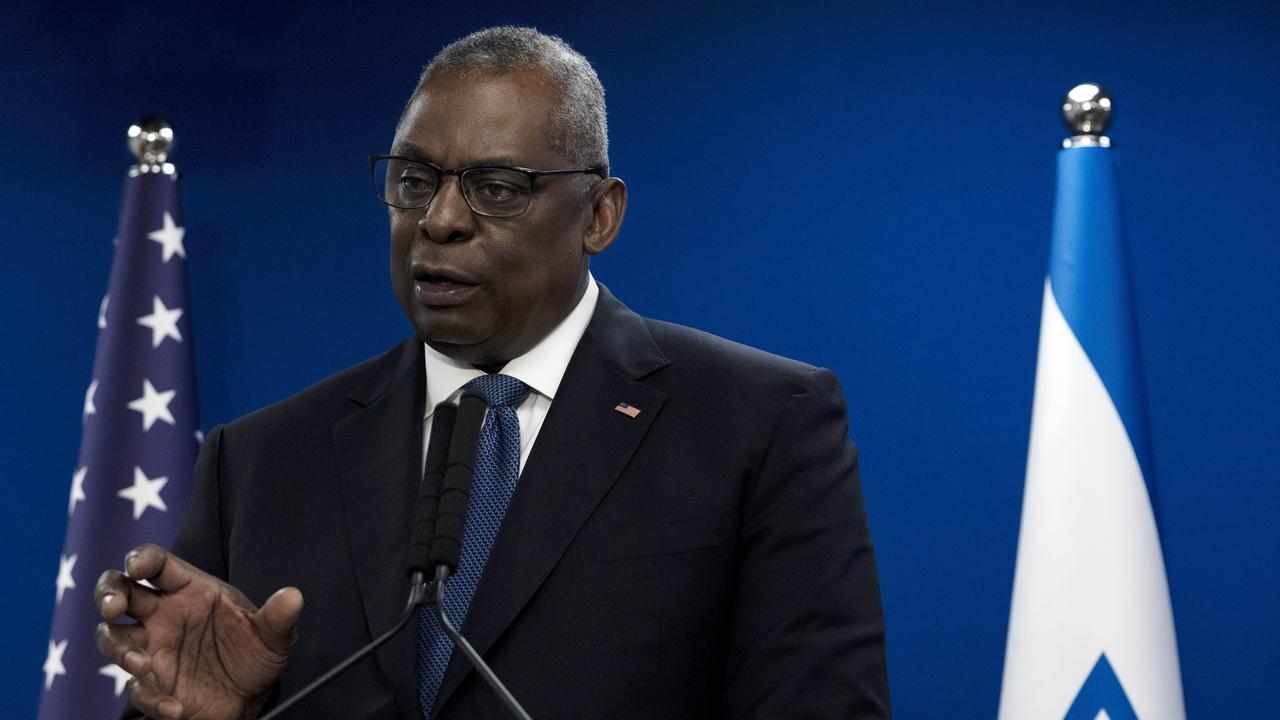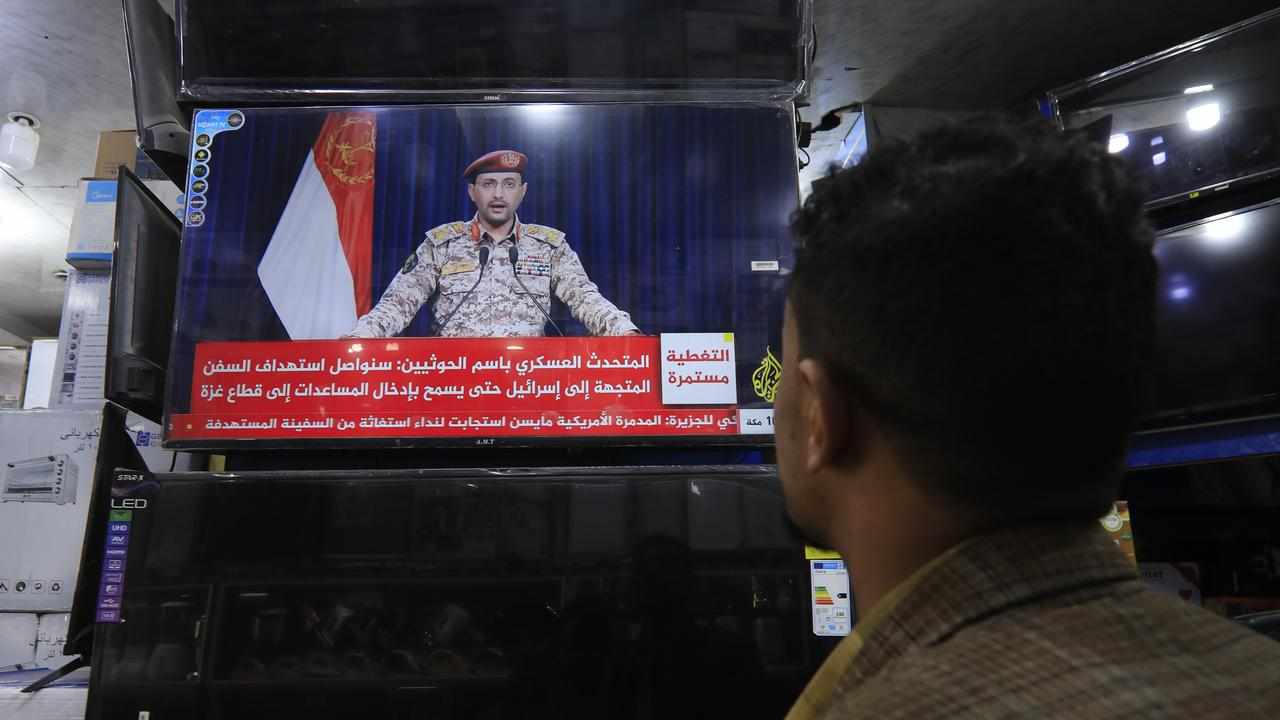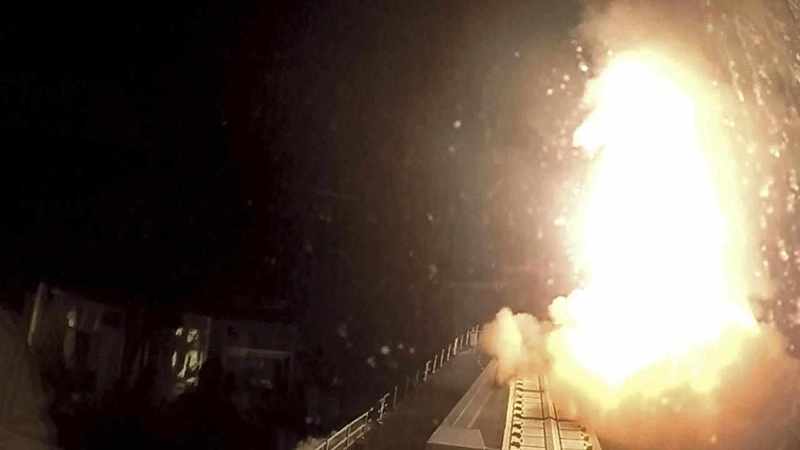US Defense Secretary Lloyd Austin has announced the creation of a multinational operation to safeguard commerce in the Red Sea following a series of missile and drone attacks by Yemen's Iran-aligned Houthis.
Austin, who is on a trip to Bahrain, home to the US Navy's headquarters in the Middle East, said participating countries included the United Kingdom, Bahrain, Canada, France, Italy, Netherlands, Norway, Seychelles and Spain.
He said they would conduct joint patrols in the southern Red Sea and the Gulf of Aden.
"This is an international challenge that demands collective action. Therefore today I am announcing the establishment of Operation Prosperity Guardian, an important new multinational security initiative," Austin said in a statement early on Tuesday.

Austin's statement leaves many questions unanswered, including whether those countries are willing to do what US warships have done in recent days - shoot down Houthi missiles and drones, and rush to the aid of commercial ships under attack.
The Houthis have waded into the Israel-Hamas conflict by attacking vessels in vital shipping lanes and even firing drones and missiles at Israel more than 1600km from their seat of power in the Yemeni capital of Sanaa.
Just hours before Austin's announcement, the Houthi group said it launched a drone attack on two cargo vessels in the region.
Brigadier General Yahya Saree, the Houthi military spokesman, said they launched what he described as "naval aircraft" at the Cayman Islands-flagged Swan Atlantic, a chemical and oil products carrier, and Panama-flagged MSC CLARA cargo ship.
The Houthis have threatened to target all ships heading to Israel, regardless of their nationality, and warned international shipping companies against dealing with Israeli ports.
The war between Israel and Hamas, which began on October 7, has sent shock waves through the region and threatened to cause a broader conflict.

About 15 per cent of world shipping traffic usually transits via the Suez Canal, the shortest shipping route between Europe and Asia, passing then as well into the Red Sea waters off Yemen.
But the unrest has disrupted maritime trade, as freight firms reroute around Africa instead, adding costs and delays which are expected to be compounded over coming weeks.
Combined, the companies that have diverted vessels "control around half of the global container shipping market," ABN Amro analyst Albert Jan Swart told Reuters.
Oil major BP temporarily paused all transits through the Red Sea and oil tanker group Frontline said on Monday its vessels would avoid passage through the waterway, signs the crisis was broadening to include energy shipments.
Crude oil prices rose on those concerns on Monday.
Later on Monday, Norwegian energy group Equinor said it had rerouted "a few ships" carrying crude oil and liquefied petroleum gas (LPG) away from the Red Sea.

Tanker firm Euronav said it was avoiding the Red Sea until further notice.
The Houthi attacks were also forcing companies to rethink their connections with Israel, with Taiwan's Evergreen Marine saying on Monday it had decided to temporarily stop accepting Israeli cargo.
During a visit to Israel on Monday, Austin squarely blamed Iran for the Houthi attacks.
"Iran's support for Houthi attacks on commercial vessels must stop," he said.
At a news conference in Tel Aviv, Austin said: "As we are driving to stabilise the region, Iran is raising tensions by continuing to support terrorist groups and militias."
He said no group or state should test the United States' resolve.
"In the Red Sea we're leading a multinational maritime task force to uphold the bedrock principle of freedom of navigation," he said.









